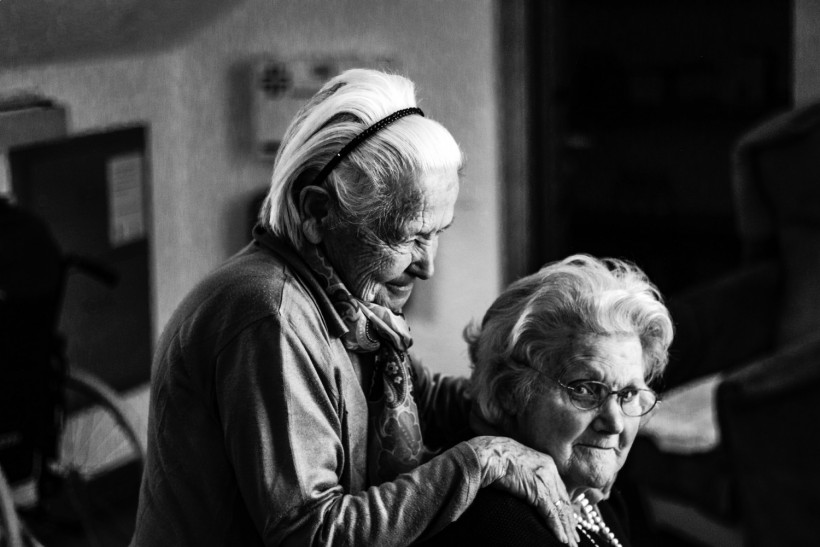Nursing Home Abuse: How Can it be Prevented?

Nursing homes are designed to provide elderly individuals with a safe and comfortable environment where they can receive the care and attention they need. Unfortunately, not all nursing homes live up to this expectation, and instances of nursing home abuse are becoming increasingly common. Sources like Nursing Home Law Center claim that upwards of 85% of nursing homes have had at least one allegation of abuse or neglect. Nursing home abuse can take many forms, including physical abuse, emotional abuse, sexual abuse, and financial exploitation. Individuals and their families must understand the warning signs of abuse and take action to prevent it.
Types of Nursing Home Abuse
Nursing home abuse takes many forms, including:
Physical Abuse
Physical abuse is the use of force or violence that results in injury, pain, or impairment. This can include hitting, pushing, slapping, or even restraining an individual against their will. Physical abuse can result in bruises, cuts, broken bones, and other injuries. In severe cases, physical abuse can even lead to death. Physical abuse can be particularly devastating for elderly individuals who may have pre-existing health conditions that make them more vulnerable to injury.
Emotional Abuse
Emotional abuse involves the use of words or actions that cause psychological harm to an individual. This can include verbal abuse, such as yelling or insulting an individual, or nonverbal abuse, such as ignoring or isolating them from others. Emotional abuse can result in depression, anxiety, fear, and other psychological problems. Emotional abuse can be particularly harmful to elderly individuals who may be more susceptible to mental health issues.
Sexual Abuse
Sexual abuse involves any sexual activity that is non-consensual or unwanted. This can include touching, fondling, or even rape. Sexual abuse can result in physical injuries, sexually transmitted infections, and psychological trauma. Sexual abuse can be particularly devastating for elderly individuals who may be physically and mentally frail and unable to defend themselves against an attacker.
Financial Exploitation
Financial exploitation involves the misuse or theft of an individual's money or property. This can include stealing from an individual's bank account, coercing them into signing over property or using their credit card without permission. Financial exploitation can result in financial ruin, loss of property, and other financial problems. Financial exploitation can be particularly harmful to elderly individuals who may be living on a fixed income and have limited financial resources.
Warning Signs
There are several warning signs of nursing home abuse that individuals and their families should be aware of. These can include physical injuries, such as bruises, cuts, or broken bones. They may also exhibit changes in behavior, such as becoming withdrawn or depressed, or exhibiting signs of anxiety or fear. Other warning signs may include unexplained weight loss, poor hygiene, or untreated medical conditions. In some cases, individuals may also exhibit signs of financial exploitation, such as missing valuables, unexplained withdrawals from bank accounts, or unpaid bills.
What Can Be Done?
If you suspect that an elderly individual is experiencing abuse in a nursing home, several steps can be taken. First, it is important to report the abuse to the appropriate authorities, such as the local police department or the state's adult protective services agency. In addition, it may be helpful to contact an attorney who specializes in elder abuse cases. They can help the individual and their family understand their legal rights and options and may be able to assist in pursuing legal action against the nursing home or caregiver responsible for the abuse.
Prevention
Both staff members and family members play a vital role in preventing nursing home abuse. Nursing home staff members can help to prevent abuse by receiving training on how to recognize and prevent abuse. They can also implement policies and procedures that prioritize the safety and well-being of residents. Family members can also play an important role in preventing nursing home abuse by visiting their loved ones regularly and being vigilant for signs of abuse. They can also advocate for the rights of their loved ones and work with nursing home staff to ensure that their care needs are being met.
Conclusion
Nursing home abuse is a serious issue that affects many elderly individuals around the world. Individuals and their families must understand the warning signs of abuse and take action to prevent it. Nursing home abuse is a violation of human rights, and it is up to all of us to speak out against it and demand that our loved ones are treated with dignity and respect.
Subscribe to Latin Post!
Sign up for our free newsletter for the Latest coverage!
* This is a contributed article and this content does not necessarily represent the views of latinpost.com










